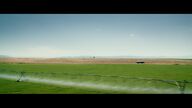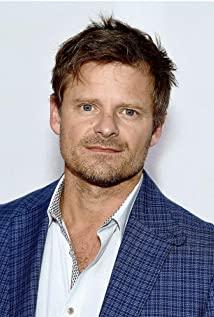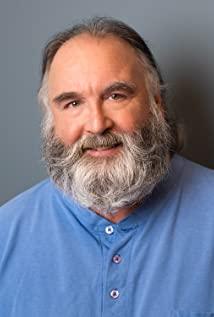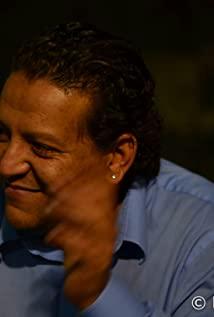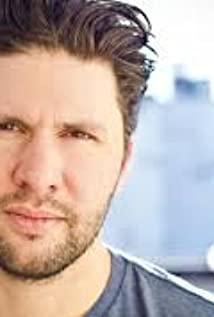However, with the taste of these American popcorn, this is a niche literary film.
Viggo Mortensen plays a well-educated father Ben in the film, who is kind but stern. He loves life, but is very hostile to mainstream society. He lives alone in the jungle of the Pacific Northwest with six children.
Their daily life consists of getting up early to exercise, hunting and cooking, sitting around a campfire in the evening to study quantum mechanics, and then ensemble of their own folk songs before going to bed.
Under the guidance of this father, the children are all resolute opponents of capitalism. You can easily hear from them: "This is a crude display of wealth!" and so on.
Director Matros, at the beginning of the film, constructed such a completely naturalistic utopia.
Seeing this, I used to think that the only problem with this family life is simply the disconnection from the mainstream society. Father Ben teaches his children how to use daggers proficiently, not how to play ball and game consoles. To be honest, this scene is a bit scary. A child who is under a few years old is playing with military daggers. You say it is scary.
In any era, if a person wants to integrate into the group, a certain common language is needed. This common language is the so-called "social currency." Justin Bieber’s concert, so I can talk about it.
Obviously, Ben's child is destined to be a freak in society. There are few children under the age of 18 who like to get together every day to talk about ideology and string theory.
But with the suicide of the children's mothers, conflicts began to become prominent. The problem faced by this family is not only out of touch with each other, but also caused conflicts within the family.
The eldest son wants to go to college, but his father Ben thinks that there is no school worthy of teaching him. The youngest son thinks his father is dangerous, and Ben thinks this is the best life.
From here, the film has embarked on the standard road film process, with problems and contradictions. The road is the road to redemption. In 120 minutes, the director must lead the audience to solve these problems.
Ben took the children to attend his wife’s funeral. Along the way, the background music was constantly playing ballads full of love. The light in the lens was fascinated, like smoking too much marijuana. Ben was arguing with relatives at the table, like a rebellious 16-year-old. juvenile.
When they appeared together in the church, wearing exaggerated "fancy clothes", everything became clear: this is a group of 21st century hippies, not some followers of Henry David Thoreau.
What is a hippie? This is a very "non-Chinese" point. Hippies are a group of people in the 1960s. At the end of the World War and the beginning of the Vietnam War, many Americans died in an unknown war. So the remaining young people became confused. They are rebellious, they admire love and peace. They hate consumerism, just like Ben's mockery of consumer behavior in the film. They are hostile to capitalism and opposed to the government, so they are opposingly interested in some Eastern philosophy and communism, just like Ben's wife studies Buddhism, while the eldest son studies Mao Zedong Thought. They smoke marijuana and play wild cannons when they have nothing to do, thinking that life is about to return to the basics.
To put it simply, this is the "too young, too simple" generation. They are dissatisfied with the status quo and oppose everything, but they have done nothing except inducing some hallucinations by inducing drugs. So correspondingly, the "punk spirit" appeared later. The "punks" advocated violence and overthrow, because they found that after the hippies grew up, the world was still the same and it was useless.
This is the case with the hippies in the film. Father Ben thinks that he has established a real "ideal country." His 8-year-old son can talk about the connotation of the "Bill of Rights". When his children are running or wrestling, his children can climb unarmed. But the reality is that even if his children are beyond ordinary people, they still don't have the slightest understanding of the real society.
Just like his eldest son wanted to go to college, but after not getting permission, he shouted hysterically: "Thanks to you, you have turned us into freaks! I don't know anything about this world unless it is written On a damn book!"
But the problem is far from limited to the understanding of the outside world. The "hippies" resolutely oppose consumerism and capitalism. But when they walked into the city, there was no prey to catch, they had to send out the whole family to steal things from the supermarket to fill their stomachs, and they also called it "Operation to Save Food." When Ben's daughter fell off the roof and lay on a hospital bed, who would pay for it? There is no doubt that it is not Ben himself, but Ben's rich father-in-law. Ben and his wife live in seclusion in the mountains. Although they are very economical and only buy the necessities, they still have six children. Who will pay for it? There is no doubt that he is Ben's rich father-in-law.
When Ben’s brother-in-law asked: “I can’t imagine how you still have money left.” Ben could only say vaguely: “We only buy necessities.” When Ben’s father-in-law asked him about the “Save Food Operation” At the time, Ben behaved like a child caught by his parents.
This is a very interesting detail that runs through the whole show. When Ben is with the child, he is extremely confident and calm. When he walked into the real world to get along with relatives, he often showed childish shame, panic when he broke a bowl when he was eight years old, and was discovered by his parents, and he was helpless in the face of various social rules and regulations.
Even if he sometimes acted indifferent, like walking out of the RV naked in the morning, shocking passers-by; like reciting his wife's shocking will at a funeral. But still can't conceal the nature of his inability to deal with this world.
Hippie, utopia. These things that cannot exist on a large scale and exist for a long time in the real world must have reasons for their disappearance. When you ask a hippie why he lives like this, he must be able to talk a lot and talk. But none of these can withstand scrutiny and confrontation.
In the end, it can only be reduced to self-comfort. It can only be reduced to self-anesthesia. If the anesthesia is not strong enough, you can get some marijuana. When you are accustomed to marijuana, you can add heroin.
In life, sometimes you can't figure out whether this is unconventional or narcissistic.
At the end of the film, when Ben reflects on his daughter's accident. The director made a small compromise. Ben asks his children to go to school normally, do homework, and the original dietary philosophy remains unchanged.
This happened to be the biggest flaw in the film. Director Matt Rose, at the beginning of the film, showed a family that stunned everyone's jaws. People thought they would give a touching answer to a big question. But from the middle of the film, it gradually declined into a family, understanding the subject that was badly photographed by the Americans, and in the end it simply made an unclear compromise.
It can be said that those who agree with Ben's approach are not wrong, and those who oppose it are not wrong. But they agree and oppose it, and those who have not coordinated in the end will be dragged to the gallows by the audience. After all, everyone came to tangled with the director from time to time.
Vigo Mortensen, the actor of his father Ben, is an old face for many viewers-Aragon in "Lord of the Rings". Viggo Mortensen himself has a magical similarity with this character. A writer, a famous photography enthusiast, poet, musician, and philosopher, he has a dazzling title, and he complements the protagonist, the almighty father who teaches literature with a dagger. .
In the end, just like in the movie, the father and the children, observing the mother's hippie wishes, flush the ashes into a flush toilet in a public toilet in the city center. The hippie culture is also drifting away. I think the best wish we can make is not that there will be no more lost times, but that when that era comes, there will be fewer lost people.
View more about Captain Fantastic reviews




